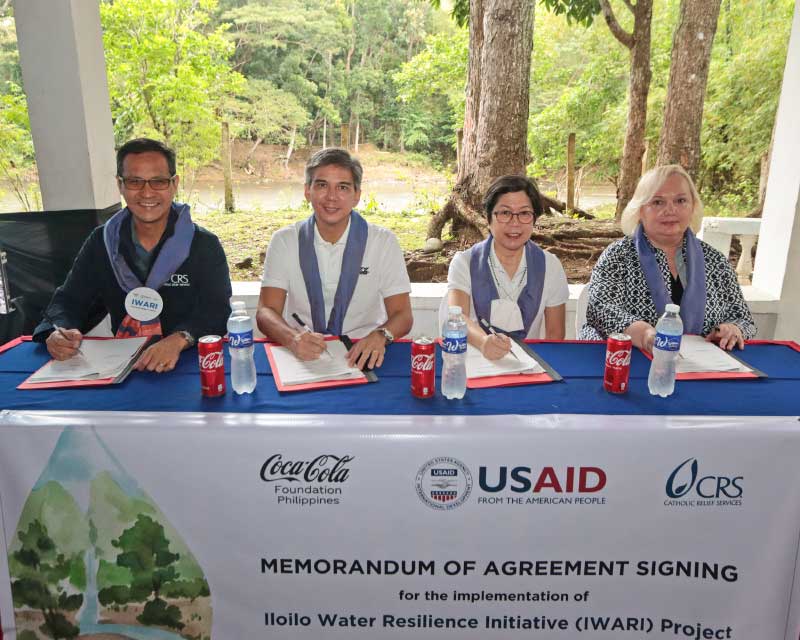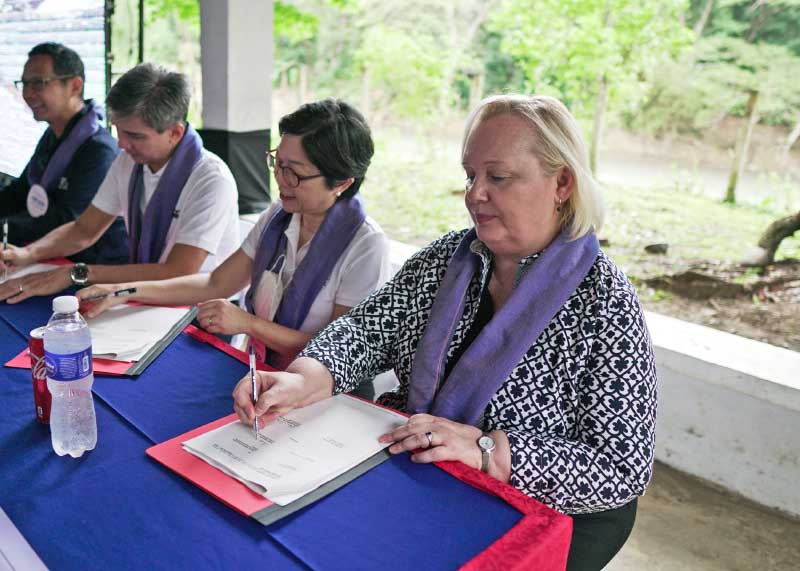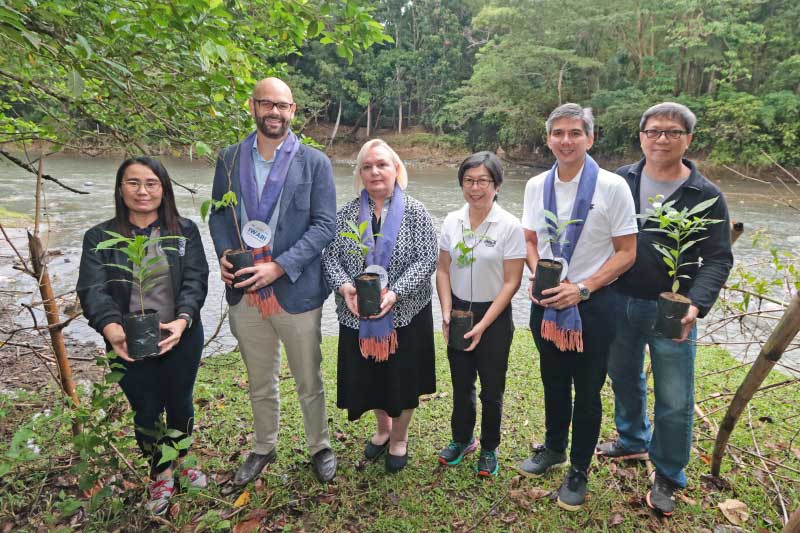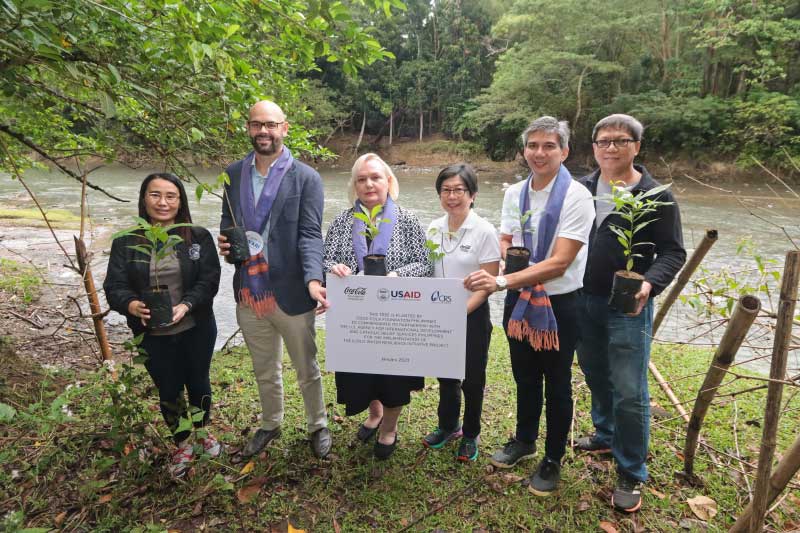Working alongside the US Agency for International Development (USAID) and Catholic Relief Services Philippines (CRS Philippines), Coca-Cola Foundation Philippines continues to invest in water resilience in the Philippines.
This recent collaboration was formalized through a signing of a memorandum of agreement (MoA) for the implementation of the three-year Iloilo Water Resilience Initiative (IWARI) Project.
Antonio Del Rosario, Coca-Cola Foundation Philippines Chairman, Ryder Rogers, USAID Philippines Environment Office Director, and Sanda Rihtman, CRS Philippines Sub-Regional Country Representative represented their respective organizations for the MoA signing held on January 10, 2023, at the Maasin Watershed Forest Reserve, one of the water project sites.
The signing event also brought together partners from Green Forum Western Visayas, Philippine Disaster Resilience Foundation, Conservation International, Iloilo’s people’s organizations, and local community representatives to jointly launch the project.
To commemorate the partnership and their commitment to water and climate resilience, representatives from Coca-Cola Foundation Philippines, USAID, and CRS Philippines planted Narra trees dedicated to the project.
Iloilo City, a coastal city in the Philippines, is home to around 500,000 community members who face threats to their infrastructure, livelihoods, and lives due to climate change.
In December 2021, the city declared a state of calamity when Typhoon Odette (International name: Rai) damaged the lives and shelters of around 46,000 individuals. Only two years before (2019), the city also suffered drought causing up to USD 18 million in damages to crops, fisheries, poultry, and livestock.
The IWARI Project aims to address the urgent need for sustainable management of critical watersheds in Iloilo province.
The IWARI Project will enhance water availability from the Tigum-Aganan Watershed and Iloilo-Batiano Watershed for the sustained benefit of upstream and downstream communities, including Iloilo City.
The IWARI project will also build capacity and accompany stakeholders in Iloilo to sustainably manage their natural resources, specifically, the critical Tigum-Aganan Watershed.
“Water is essential to life, to nature, and to every community, said Coca-Cola Foundation Philippines Chairman Antonio Del Rosario. “Coca-Cola supports the development of resilient communities by supporting effective water resource management for the environment where we operate and touch people’s lives. We are proud to have partnered with USAID and CRS Philippines for this project that will help protect and conserve watersheds and enhance water availability to benefit upstream and downstream communities.
The IWARI Project aims to implement conservation and livelihood activities that will benefit around 1,800 households.
USAID Philippines Environment Office Director Ryan Rogers expressed the Agency’s commitment to water resilience: A key aspect of USAID’s climate strategy is strengthening the resilience of those people who are most vulnerable to climate impacts.
“We are grateful for our partnership with the Government of Iloilo and the Coca-Cola Foundation which is enabling the use of data to strengthen climate resilience,” said Rogers
“CRS has worked with communities in partnership with government and civil society for decades. We are honored to leverage this experience in synthesizing this watershed management project with other Climate Change Adaptation interventions across the country, like the USAID Climate Resilient Cities Project,” said Sanda Rihtman, CRS Philippines Sub-Regional Country Representative.
Coca-Cola Foundation Philippines promotes collaboration among communities, civil society, and local governments to build resilience to the increasing threat of climate change. The watershed management projects present solutions to ensure the protection, preservation, and sustainable governance of critical terrestrial landscapes that increase the Philippines’ resilience to floods, droughts, and other climate-induced hazards.























